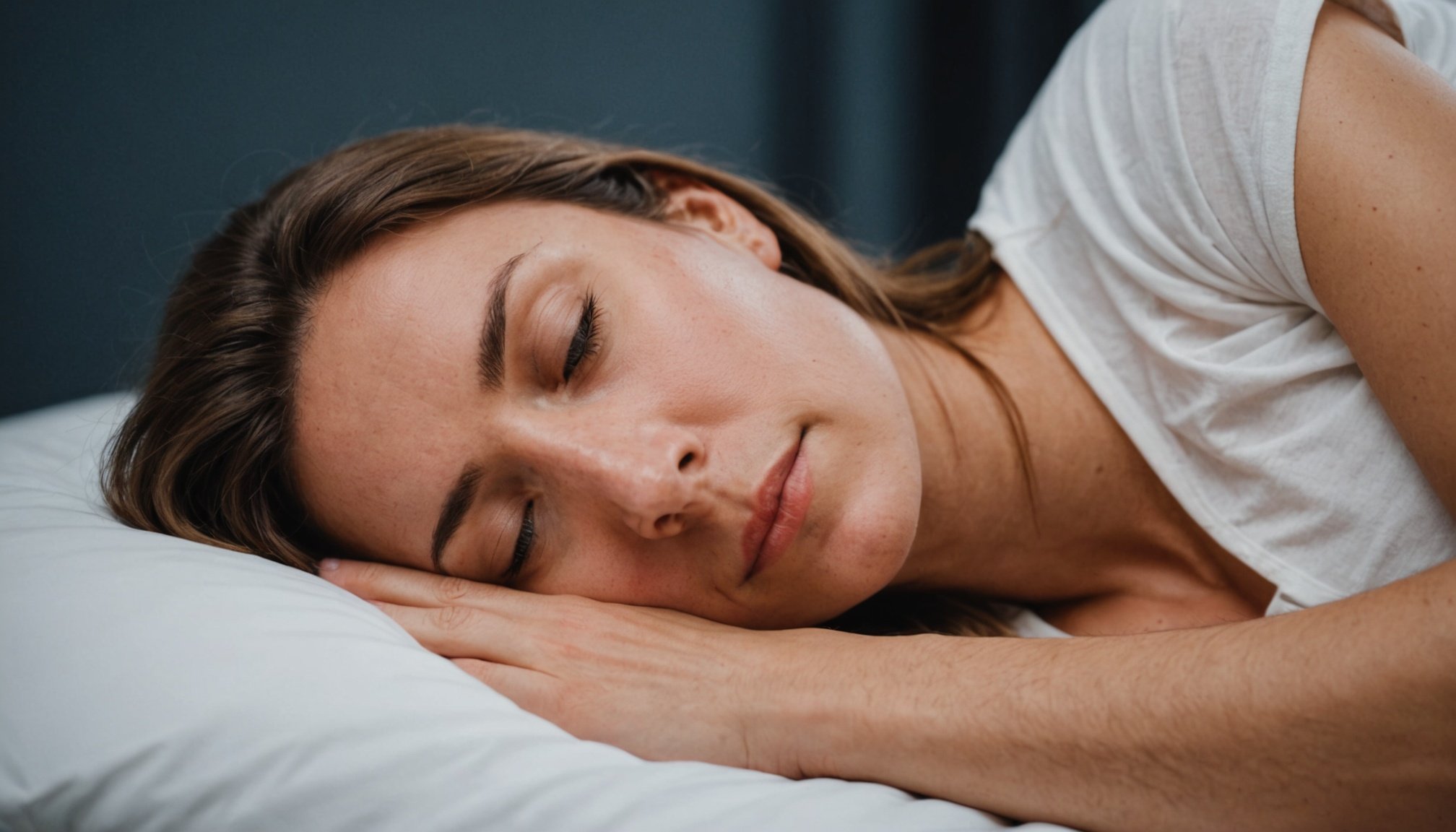Insomnia affects millions of adults in the UK, disrupting their daily lives and overall well-being. Many seek natural remedies, and aromatherapy stands out for its calming effects. Simple yet effective, essential oils can transform sleep environments, promoting relaxation and tranquility. This exploration of aromatherapy’s impact on insomnia uncovers unique scents and their benefits, offering insights for those struggling to achieve restful sleep. Discover how integrating aromatherapy into your nightly routine could unlock the restful slumber you’ve been missing.
Overview of Aromatherapy and Its Benefits for Sleep
Aromatherapy is a holistic healing treatment that uses natural plant extracts to promote health and well-being. It’s often referred to as essential oil therapy. This practice harnesses the aromatic essences of plants to improve the body, mind, and spirit, enhancing both physical and emotional health. The principles of aromatherapy revolve around using these natural oils to stimulate brain function and promote relaxation.
Topic to read : Unlocking Health Benefits: The Impact of UK-Grown Superfoods on Your Well-Being
Historically, aromatherapy has been employed for various purposes, including sleep enhancement. Ancient civilizations, such as the Egyptians and Greeks, utilized aromatic plants for their calming properties. Lavender, for example, was often used to help with sleep issues, while chamomile was revered for its soothing effects. These traditional uses highlight the enduring belief in the power of aromatherapy to aid sleep.
The benefits of aromatherapy for insomnia are well-documented. Essential oils like lavender, chamomile, and sandalwood are known for their ability to reduce stress and anxiety, common culprits of sleepless nights. By promoting relaxation and a sense of calm, aromatherapy can significantly improve sleep quality. For those struggling with insomnia, incorporating aromatherapy into their nightly routine can provide a natural and effective solution.
Have you seen this : Unlocking Calm: Top Stress Relief Strategies Tailored for UK University Students
Essential Oils for Insomnia Relief
Exploring the realm of essential oils can offer natural solutions for those grappling with insomnia. These sleep aids can be remarkably effective, providing a calming atmosphere conducive to restful sleep.
Lavender Oil
Lavender oil is renowned for its soothing properties. It contains compounds that interact with the brain, promoting relaxation and reducing anxiety. This makes it a powerful ally against insomnia. Recommended methods of use include diffusing the oil in your bedroom or adding a few drops to your pillow. Scientific studies have shown that lavender oil can significantly improve sleep quality, making it a trusted choice for many.
Chamomile Oil
Chamomile oil, like its herbal counterpart, is celebrated for its calming effects. It works by reducing stress and anxiety levels, helping to prepare the mind and body for sleep. To use chamomile oil, consider adding it to a warm bath before bedtime or using it in a diffuser. Evidence suggests that chamomile can enhance sleep quality and duration, offering relief for those with insomnia.
Bergamot Oil
Bergamot oil is less commonly known but equally effective. It has mood-enhancing properties that help alleviate anxiety, a common insomnia trigger. Using bergamot oil in a diffuser or applying it topically with a carrier oil can promote a peaceful sleep environment. Research supports its efficacy in reducing stress, further aiding insomnia relief.
Scientific Research and Statistics on Aromatherapy and Insomnia
In recent years, research studies have delved into the efficacy of aromatherapy in addressing insomnia. Numerous investigations highlight the potential benefits of essential oils in enhancing sleep quality. For instance, a study published in the Journal of Alternative and Complementary Medicine found that participants using lavender oil experienced a significant improvement in sleep duration and quality compared to those not using it.
In the UK, insomnia affects a substantial portion of the adult population. Recent UK statistics indicate that approximately one in three adults experience insomnia symptoms, underscoring the need for effective, natural remedies. Aromatherapy emerges as a promising option, with its ability to promote relaxation and reduce anxiety.
The implications of these findings are profound for those seeking alternative sleep aids. Aromatherapy offers a non-invasive, natural solution, with essential oils like lavender and chamomile showing notable efficacy. By integrating aromatherapy into their nightly routine, individuals may experience improved sleep and reduced insomnia symptoms. This approach not only addresses the physical aspects of sleep but also supports mental well-being, making it a holistic solution for many.
Practical Applications of Aromatherapy for Better Sleep
Incorporating aromatherapy into your bedtime routine can be a game-changer for sleep quality. Here are some effective aromatherapy techniques to consider:
Methods of Incorporating Essential Oils
- Diffusion: Use an essential oil diffuser to disperse calming scents like lavender or chamomile in your bedroom. This method ensures a consistent release of the aroma throughout the night.
- Topical Application: Mix essential oils with a carrier oil and apply to pulse points like wrists or temples. This allows the oils to be absorbed into the skin, promoting relaxation.
- Bath Soak: Add a few drops of essential oil to a warm bath before bedtime. The combination of warm water and soothing scents can significantly enhance relaxation.
Creating a Calming Sleep Environment
Aromatherapy can be pivotal in establishing a calming sleep environment. Use essential oils to create a tranquil atmosphere that supports sleep hygiene. Consider integrating soft lighting and calming sounds with your aromatherapy routine for optimal results.
Safety Tips and Considerations
When using essential oils, ensure they are diluted with a carrier oil to prevent skin irritation. Always perform a patch test before applying oils topically, and consult with a healthcare provider if you have any health concerns or conditions.
User Experiences and Testimonials
Exploring real-world user experiences and testimonials can provide valuable insights into the effectiveness of aromatherapy for insomnia. Many individuals have shared their success stories, revealing how integrating essential oils into their routines has transformed their sleep quality.
Success Stories from UK Adults
In the UK, numerous adults have reported positive outcomes by using aromatherapy. One user shared how incorporating lavender oil into their nightly routine significantly reduced their insomnia symptoms. Another testimonial highlighted the calming effects of chamomile oil, which helped create a peaceful sleep environment.
Common Challenges and Solutions
Despite the benefits, some users face challenges, such as skin sensitivity or difficulty finding the right oil blend. To overcome these, it's crucial to start with small amounts and perform patch tests. Mixing oils with a carrier can also mitigate irritation. Experimenting with different oils can help identify the most effective combination for individual needs.
Expert Opinions on Aromatherapy for Insomnia
Experts in the field of aromatherapy emphasize its potential for improving sleep. According to specialists, essential oils like bergamot and lavender can effectively reduce anxiety and promote relaxation, addressing common insomnia triggers. Their insights underscore the importance of personalized approaches when using aromatherapy as a sleep aid.











